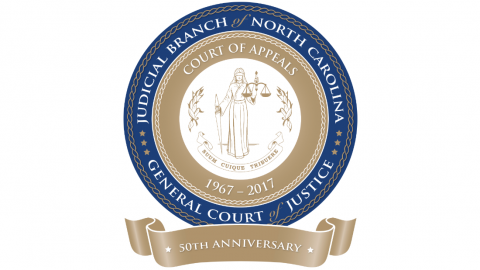District 9A Celebrates District Courts Anniversary
Article contents

At the March 21 meeting of the Roxboro Kiwanis Club at Clarksville Station restaurant, the club held what is believed to be the first local event at the judicial district level in observance of the Celebrate NC Courts statewide initiative marking foundational milestones and historic anniversaries within North Carolina's Judicial Branch of state government.
Kiwanian Alan Hicks, State Bar Councilor for Judicial District 9A consisting of Person and Caswell counties, recognized special guests Judge Marion Warren, Director of the N. C. Administrative Office of the Courts; Superior Court Judge Osmond Smith, Chief District Court Judge Mark Galloway; District Court Judge Mike Gentry, and Clerk of Superior Court Deborah Barker.
Hicks noted that 2016 is the 50th anniversary of the establishment of a unified court system in our state, which marked the beginning of the District Courts throughout the state and the creation of the Administrative Office of the Courts (AOC) to manage this third branch of state government. He informed that prior to 1966, while the Supreme Court constituted the single appellate court and the Superior Court was the only statewide trial court of general jurisdiction, there existed a hodge-podge of local courts, the make-up and jurisdiction of which varied from county to county.
The study to revamp this structure began in 1955 with a commission appointed by then governor Luther Hodges. However, the adoption of the present system labored through several legislative iterations before finally arriving at the creation of the District Courts as a second trial court of limited jurisdiction and, two years later in 1967, creation of the N. C. Court of Appeals as an intermediate level appellate court. Celebrate NC Courts will be a multi-year initiative, in that the Court of Appeals will observe its 50th anniversary in 2017 and the Superior Court will be 240 years old next year as well. In 2019 the North Carolina Supreme Court will celebrate its 200th year of existence.
Hicks observed that this process presented a textbook example of the delicate interplay between the legislative and judicial branches of government, with the ultimate product representing a number of workable compromises. As a result, he contended, North Carolina's General Court of Justice has become the envy of many states that continue to struggle with the kinds of local courts that our state replaced a half century ago.
Each of the special guests was then recognized for remarks. Judge Warren brought greetings on behalf of the Chief Justice of the North Carolina Supreme Court and the more than 6,000 employees in the Judicial Branch. He advised that approximately 3,000,000 cases are disposed of each year, but only 2.2 percent of state budget goes to the court system, despite it being a co-equal branch of government. Our Superior Court system has been in place for 239 years, although there were originally only seven statewide, which operated on a circuit rider type system. Judge Warren shared statistics about the AOC and the importance of its role to deliver administrative services to the court system statewide. He emphasized the efficiencies of the system of justice that our state enjoys.
Judge Galloway recalled that in the 1970's District Court locally consisted of one day each week for traffic and misdemeanor matters, plus two week-long session for everything else. This has improved dramatically, with more regular sessions for all types of cases, including juvenile, neglect/dependency and domestic, as well as misdemeanors and traffic, all of which were originally matters that were required to be handled by Superior Court.
Judge Gentry asserted that giving District Courts jurisdiction of child related matters was one of the most important things the state has done. Protecting children is crucial, he argued, noting that the actual divorce is not difficult but issues relating to the children and property division are thorny and require much time and attention.
Clerk of Court Deborah Barker noted that the court system exists to serve the citizens. It can be compared to a wagon wheel, of which the Clerk's office is the hub. It is the keeper of the records, of which it handles about 8 million per year. The Clerk's office has jurisdiction over incompetency proceedings, land division, estates, name changes (recent statutory changes have made this more difficult), criminal matters and adoptions, which she characterized as particularly rewarding. She also enjoys restoring competency when someone recovers their faculties. She likened her office to the traffic cop, referring people where they need to be. Courts are held almost 5 days a week now and a clerk has to be in every court room, which can be challenging, especially in these times of fiscal austerity.
The meeting closed with the cutting and enjoyment of a sheet cake decorated with the logo of the Celebrate NC Courts initiative. Hicks reminded the club members that additional information and resources are available at celebrate.nccourts.org and that promotional material will be distributed to the attorneys in the Judicial District for display in their offices and other locations throughout Person and Caswell counties.